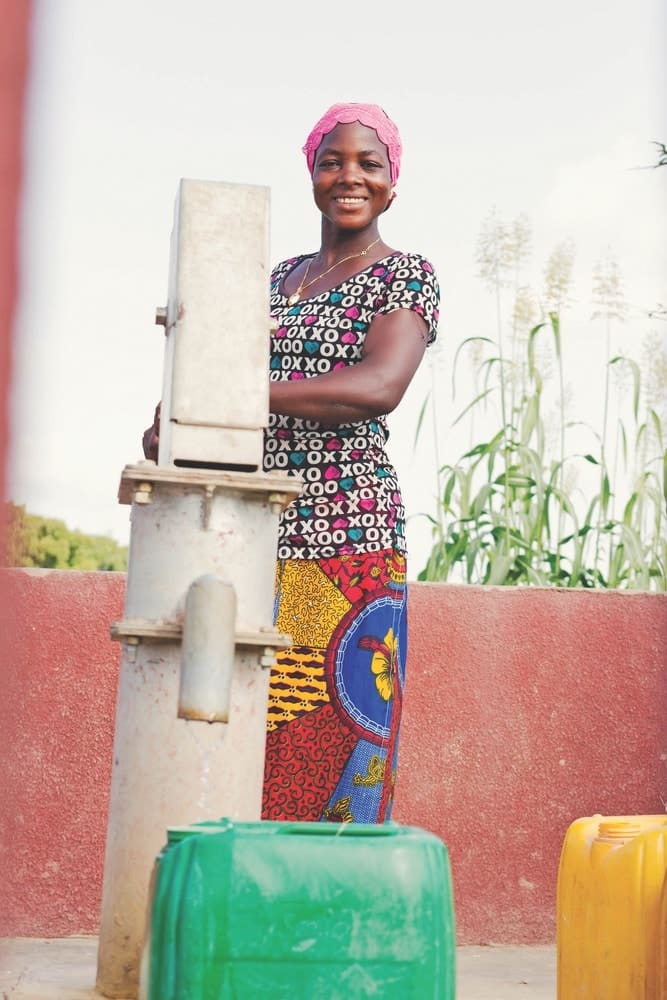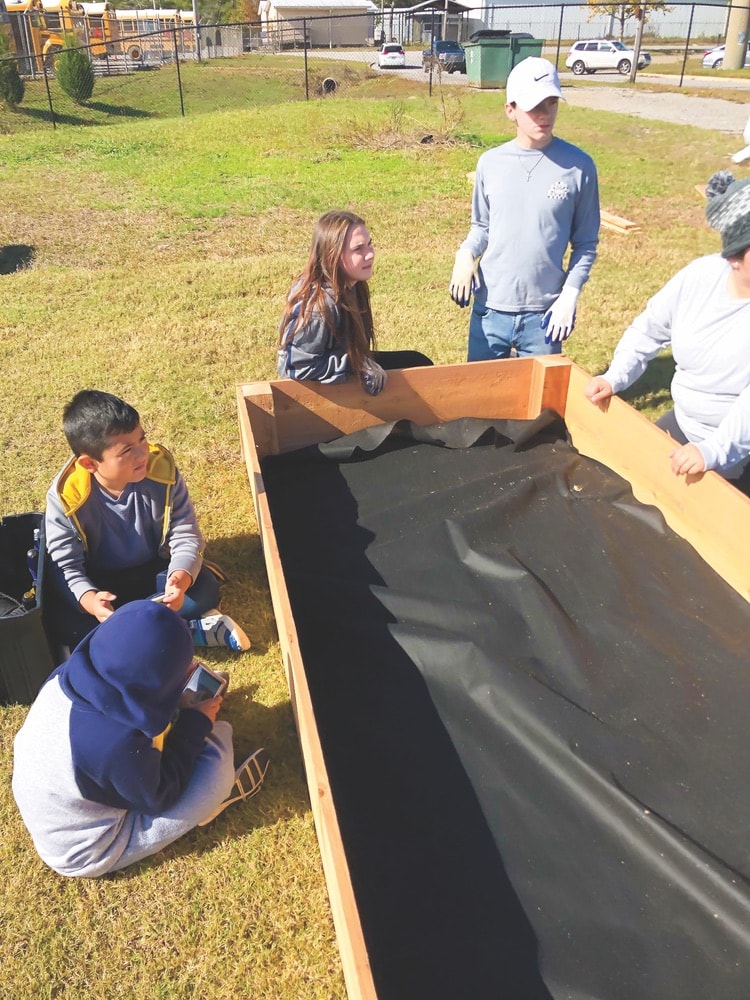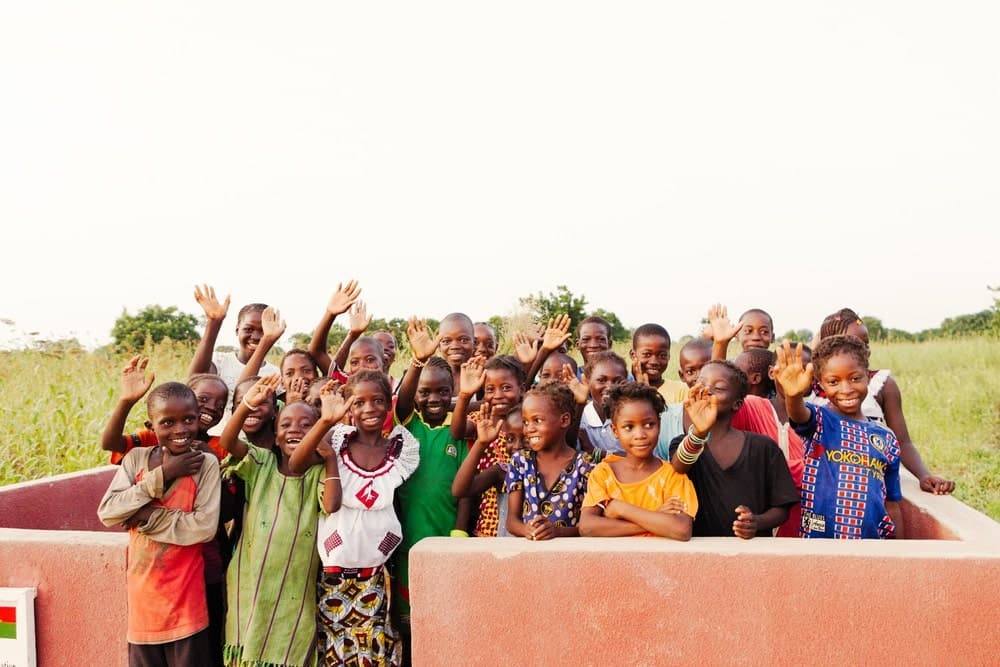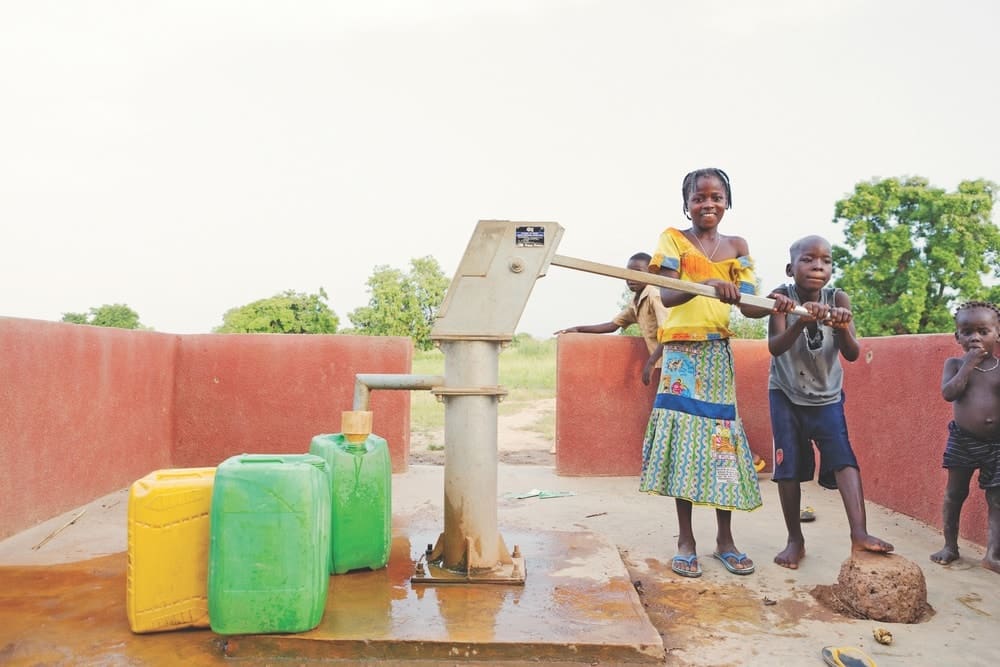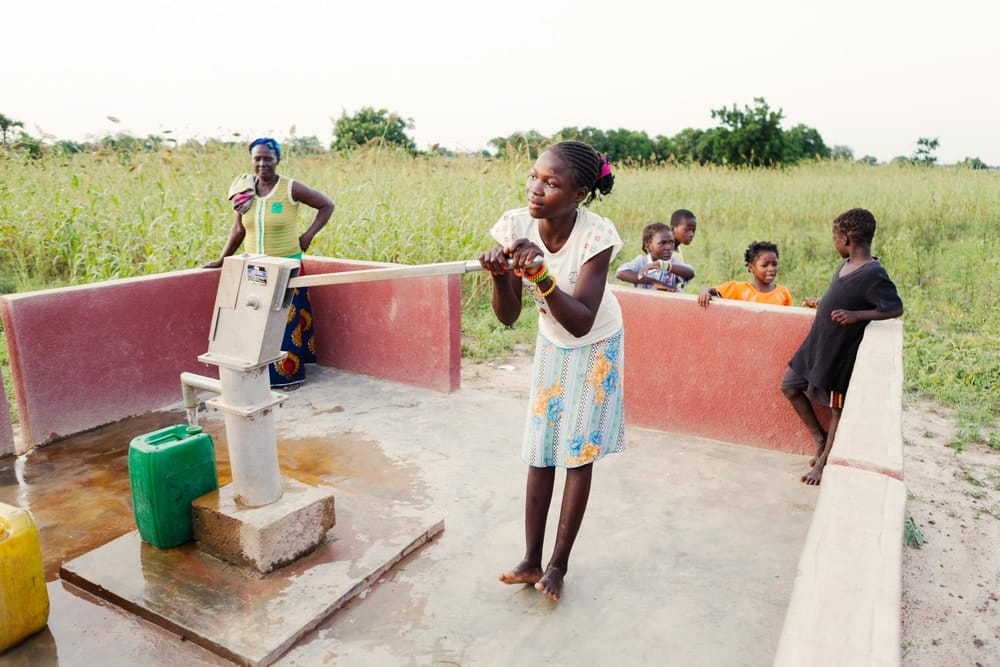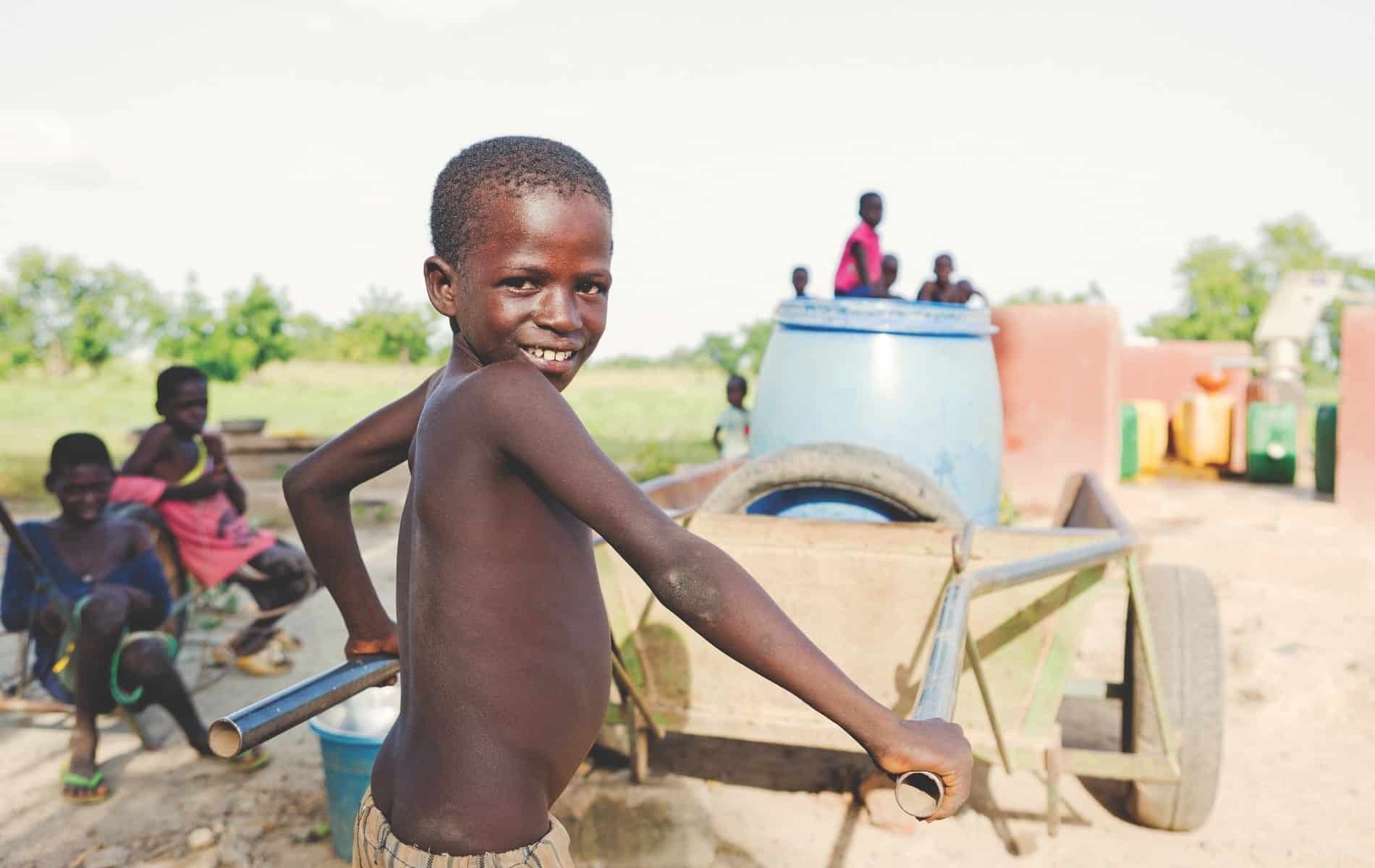
vie-magazine-sonder-project-hero-min
Building Healthy Communities Globally and Locally
By Felicia Ferguson | Photography courtesy of The Sonder Project
We believe food, water, housing, and education are basic human rights and all people deserve access. —Chad Zibelman
According to the World Health Organization, at least two billion people across the globe are dependent upon contaminated sources for their drinking water. For over one billion people, accessing clean drinking water requires a thirty-minute round trip. Additionally, food insecurity—unreliable access to sufficient quantities of affordable, nutritious food—continues to be an issue for many impoverished areas, and it isn’t limited to developing nations.
The Economic Research Service has found that more than 10 percent of US households are food insecure in a given year. Low-income, high-poverty areas, often populated by quick marts that stock processed, high-sugar, and high-fat foods, lack access to groceries and farmers’ markets with fresh vegetables. Residents living in these “food deserts” often suffer from more health issues, leading to decreased quality and length of life.
Chad Zibelman, CEO of The Sonder Project, along with his cofounders Jason Sprenkle, Ashley Horsley, and Jeremy Sprenkle, are up to the challenge of helping fix the lack of clean water and good food in communities around the world. They have targeted areas where even though the needs are great, the remedies are within reach. Their initial desire to improve education and literacy rates in African girls has taken a more holistic approach in the face of equally pressing needs. Villages in Burkina Faso, their country of focus, lacked access to clean drinking water. The Sonder Project believes clean water and healthy food are the building blocks of strong communities, and its goal now is to help communities establish a solid foundation. In addition to building wells and irrigation systems in Burkina Faso, The Sonder Project works to establish community gardens globally and locally.
- The Sonder Project is a Northwest Florida–based nonprofit whose mission is to aid impoverished communities around the world through improving health and education. Its primary focus has been building wells and irrigation systems for communities in Burkina Faso
- In addition to its work abroad, The Sonder Project also builds community gardens and holds educational programs for schools in the Florida Panhandle. The goal is to increase food security in areas known as “food deserts” and encourage young people to build gardens of their own.
In the Florida Panhandle, nestled among the lush greenery of longleaf pines, saw palmettos, and southern magnolias, there is a food desert: Panama City’s Cedar Grove community, an area ravaged by Hurricane Michael in October 2018. The Sonder Project set out to support better health and healing and to engender hope amid the challenges the community faces. “With our community garden in Panama City,” Zibelman says, “we are still in the first year of development, but local gardeners have reported feeling more connected to their community and more confident in the garden. Additionally, many of our gardeners have reported the garden has helped with the trauma of Hurricane Michael as a sort of therapy through stress relief and reconnecting with nature.”
According to a 2012 National Institutes of Health study, “A community gardening program can reduce food insecurity, improve dietary intake, and strengthen family relationships.” In November 2019, The Sonder Project built twenty garden beds at Walton High School, a Florida public school where over 60 percent of its population receive free or reduced-price lunches. The nonprofit’s school garden program created an experimental learning environment to teach students to grow their own food and encourage them to become lifelong gardeners. Through the program, Zibelman and his team are promoting healthy eating and living, as well as increasing academic engagement. They also connect the school and its students to The Sonder Project’s global initiatives to raise awareness of others in need.
“Education is the ladder of opportunity, but without food security and clean water, communities are too weak to climb.”
“In our current partnership, The Sonder Project provides the materials and leadership to see the garden built, and the school provides a teacher advisor committed to utilizing the garden with his or her students,” Zibelman says. In addition to a teacher advisor, the group requires a school administrator to serve on the Garden Leadership Committee. One of the bonuses of partnering with Walton High is the opportunity to support the school’s culinary program. The Sonder Project’s school garden will offer students the opportunity to move beyond textbook learning to hands-on experiences. “This is a pilot project for us, and if it’s successful, we hope to expand to other schools and hire program coordinators who could help supplement the curriculum around the garden.”
The Sonder Project’s labors are already seeing excellent returns. Nine wells have been completed in Burkina Faso, and community farms are on track to generate enough income to provide at least one meal every day at the local school. Surveys of sixty community members across two villages where The Sonder Project water pumps and wells were installed are very encouraging. Eighty-seven percent of the respondents said they spend less time collecting water as a result of the new pumps, and 93 percent reported fewer sick days. Additionally, since the majority of the wells were placed near local schools, attendance is up. The students have clean drinking water throughout the day, resulting in less time away from school because of illness.
- The Sonder Project is a Northwest Florida–based nonprofit whose mission is to aid impoverished communities around the world through improving health and education. Its primary focus has been building wells and irrigation systems for communities in Burkina Faso.
In 2020, The Sonder Project’s commitment to building healthy communities will expand into Malawi, another country with significant needs. “We will be establishing an office in Malawi in southeastern Africa where we will continue to dig wells, help build schools, and support food security through community farms,” Zibelman says. The nonprofit has two schools slated for construction in 2020, and they will be sending groups of people from across the US to assist.
Thanks to a core of volunteers and communities who are committed to sustaining the projects over the long term, wells are springing up in Africa and gardens are blooming in the Florida Panhandle. But more people are needed to help combat the formation of food deserts and dig wells for clean drinking water. “Education is the ladder of opportunity, but without food security and clean water, communities are too weak to climb,” Zibelman says. Whether the donation is money, skill, or time, The Sonder Project welcomes all assistance in its endeavors.
— V —
Visit TheSonderProject.org for more information or to learn how you can help.
Felicia Ferguson holds master’s degrees in healthcare administration and speech-language pathology but is currently an award-winning freelance writer and author. She finds inspiration in lakes and gardens and is blessed to have both at her home in Destin, Florida. More details can be found at FeliciaFergusonAuthor.com.
Share This Story!
KEEP UP WITH THE LATEST STORIES FROM VIE



